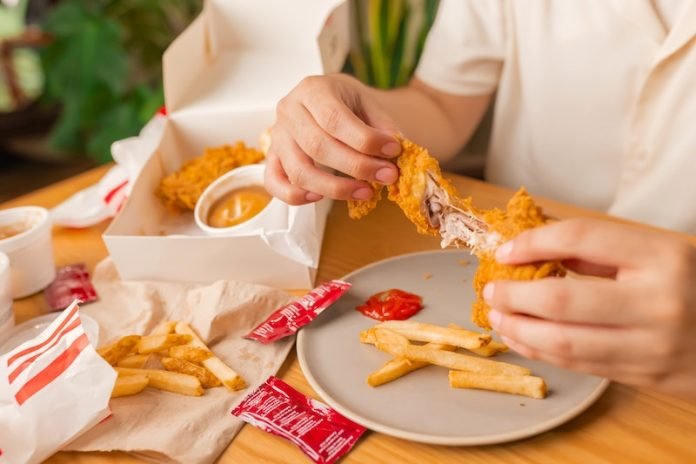
Is your night-time rest leaving you more tired than relaxed?
It might be your diet! A recent study by Uppsala University researchers published in the Obesity Journal reveals that junk food can impact your deep sleep quality.
The Ties that Bind Sleep and Diet
Several research efforts in the past have hinted at a connection between what we eat and how we sleep. Yet, not many have delved into how diet directly influences our sleep patterns.
This Uppsala study attempted to fill that gap by letting the same participants try out different diets in random sequences.
The Investigation Begins
The study aimed to see if changes in our sleep patterns could be linked to the health effects of different diets. This approach was interesting because previous research has associated diets rich in sugar with poor sleep.
Unraveling the Complexities of Sleep
As Jonathan Cedernaes, the study’s lead researcher, points out, sleep isn’t a single state but a series of different stages, each with unique functions.
For instance, deep sleep is crucial for hormonal regulation. Until now, no one had studied whether different diets could affect these stages.
Putting Diets to the Test
To study the effect of diet on sleep, the research team observed 15 healthy, normal-weight young men in a sleep laboratory. Each participant followed a healthier and an unhealthier diet for a week, in no particular order.
Both diets had the same calories, tailored to each participant’s needs, but the unhealthier one had more sugar, saturated fat, and processed foods.
The Findings
The study revealed that participants’ total sleep time remained the same on both diets.
However, when they consumed junk food, their deep sleep quality, measured as slow-wave activity, declined compared to when they consumed healthier food.
In simple terms, the unhealthier diet led to shallower deep sleep, a pattern seen in aging and insomnia. This finding suggests that diet might play a more significant role in such conditions than previously thought.
The Journey Ahead
The Uppsala study leaves us with more questions to explore. For example, how long do the effects of an unhealthier diet on sleep last?
What impacts do these sleep changes have on functions regulated by deep sleep? Is there a specific component in junk food that harms sleep the most?
As Cedernaes notes, more research is needed to shed light on these questions. For now, though, it seems like “eating right to sleep tight” might be wise advice to follow.
If you care about sleep, please read studies about drugs that could help treat insomnia, sleep loss, and how to sleep to prevent Alzheimer’s disease.
For more information about sleep, please see recent studies about drugs that can lower the severity of sleep apnea by one-third, and results showing this herb may help you sleep well at night.
The study was published in Obesity.
Follow us on Twitter for more articles about this topic.
Copyright © 2023 Knowridge Science Report. All rights reserved.



